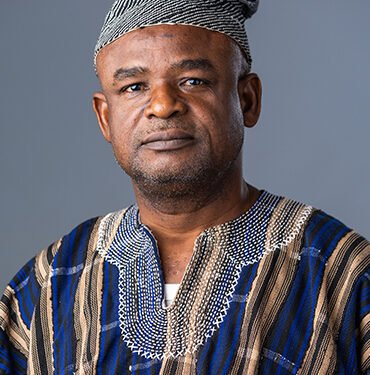Dr. Idowu Oyebanjo, the Managing Director of Idfon Power Engineering Consultants, has voiced strong concerns over the recent attempts by Nigeria’s National Assembly (NASS) to amend the 2023 Electricity Act, stating that such moves could have detrimental effects on investor confidence in Nigeria’s power sector.
The Electricity Act, passed under the leadership of President Bola Tinubu, was seen as a critical step towards reforming the country’s power sector, but ongoing discussions regarding amendments are stirring fears that this progress could be undone. Speaking to the media, Dr. Oyebanjo emphasized the importance of the Electricity Act in advancing Nigeria’s economic development and energy accessibility.
“The Electricity Act has put Nigeria on the right path towards economic development, energy access, and it must not be allowed to be truncated,” he said. His comments reflect growing concerns among industry stakeholders about the potential implications of any policy reversal, especially when Nigeria is already grappling with power shortages and inefficiencies.
“This is the kind of thing that makes investors not come to a country. Investors are watching, and when they see policy summersaults, they will refrain from coming to that country to invest.”
Dr. Idowu Oyebanjo, the Managing Director of Idfon Power Engineering Consultants
With global investors increasingly seeking stable, predictable markets, any indication of regulatory uncertainty could prompt them to look elsewhere, undermining efforts to attract private capital into Nigeria’s energy sector.
The 2023 Electricity Act represents a significant shift in how Nigeria’s electricity market is governed. One of the key provisions of the Act is its empowerment of state governments to regulate and distribute electricity within their territories. This move marks a break from decades of centralized control over the country’s power infrastructure.
According to Dr. Oyebanjo, the decentralization of power regulation is a crucial step forward. It allows state governments to tailor solutions to their unique energy needs while ensuring compliance with technical standards.
“To be sure, the decision to decentralize and devolve powers to the states is the correct one.
“It has been there since 1979. Somebody cleverly removed it in the 1999 Constitution. Now, we have gone back to it after 40 years. So, it’s not good for anybody to truncate it.”
Dr. Idowu Oyebanjo, the Managing Director of Idfon Power Engineering Consultants
He alluded to a long-standing debate over the distribution of power between the federal government and the states, with the 2023 Act reinstating provisions that had been removed in previous legal frameworks.
Forum of State Commissioners of Power and Energy Opposes Amendment

The proposed amendments to the Electricity Act have not gone unchallenged. The Forum of State Commissioners of Power and Energy, which represents the 36 state commissioners in charge of power, has strongly opposed the centralization of electricity regulation.
In a petition to the Senate Committee on Power, dated December 14, 2024, the Forum pointed out that electricity is a concurrent responsibility under Nigeria’s Constitution. The 2023 Electricity Act had restored the autonomy of states to regulate electricity, in line with the principles of federalism, and encouraged localized solutions to power distribution challenges.
The Forum has raised concerns that centralizing regulatory authority under NEMSA would undermine the progress made in decentralizing the sector. They also warned that this shift could discourage private sector participation in the electricity market, which is crucial for driving innovation and investment in the sector.
By putting regulatory power back in the hands of a federal agency, the proposed amendments could diminish the ability of states to create tailored solutions for their unique energy needs, further entrenching inefficiencies in the system.
Dr. Oyebanjo emphasized the need for stability in regulatory frameworks, particularly when it comes to attracting the investments required to modernize Nigeria’s aging infrastructure. “We have come a long way, and it would be a tragic mistake to backtrack now,” he said.
As debates surrounding the proposed amendments continue, many stakeholders are urging the National Assembly to carefully consider the broader economic implications of their actions.
The power sector’s growth depends on the ability of private investors to trust that Nigeria’s regulatory environment will remain consistent and supportive of their interests. A policy reversal could send a negative signal to both local and international investors, dampening their enthusiasm for the sector and hindering efforts to meet Nigeria’s energy needs.
READ ALSO: South Africa Bolsters Border Security Amid Mozambique Unrest























